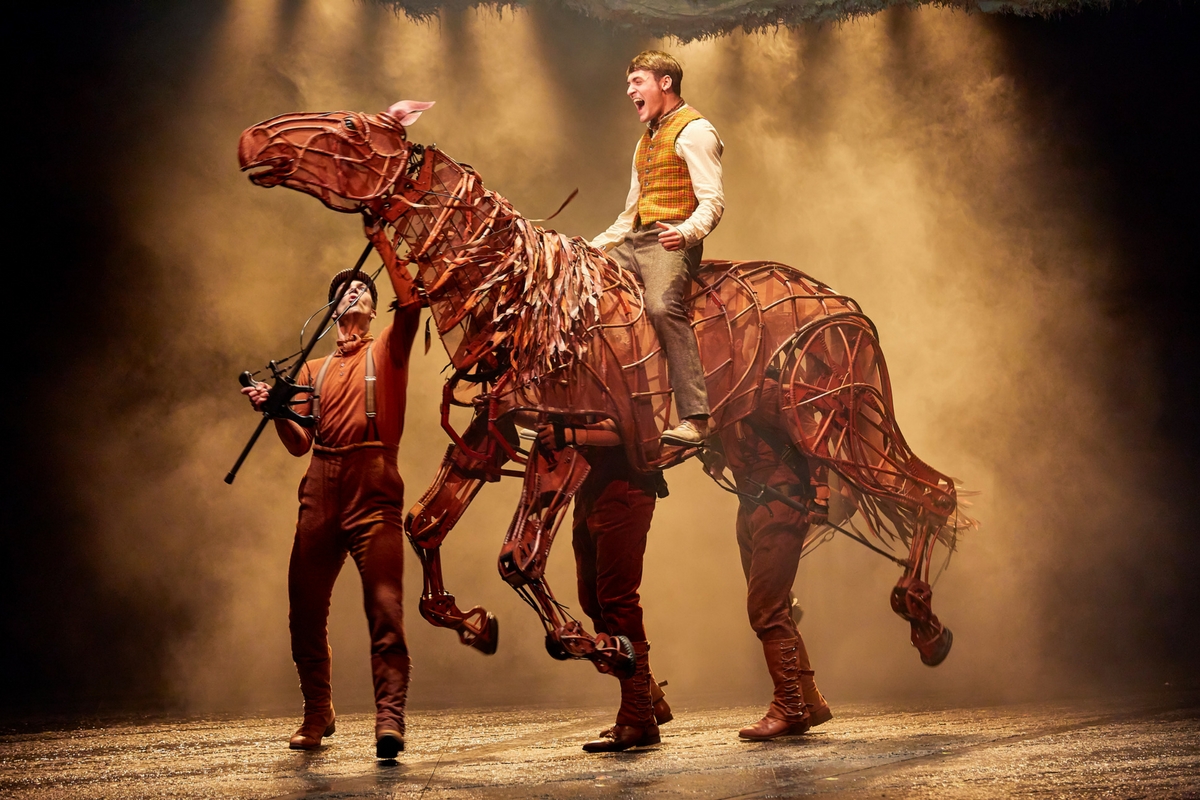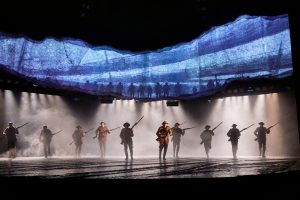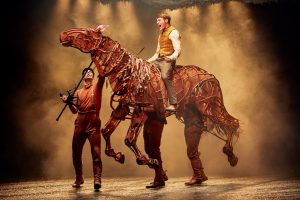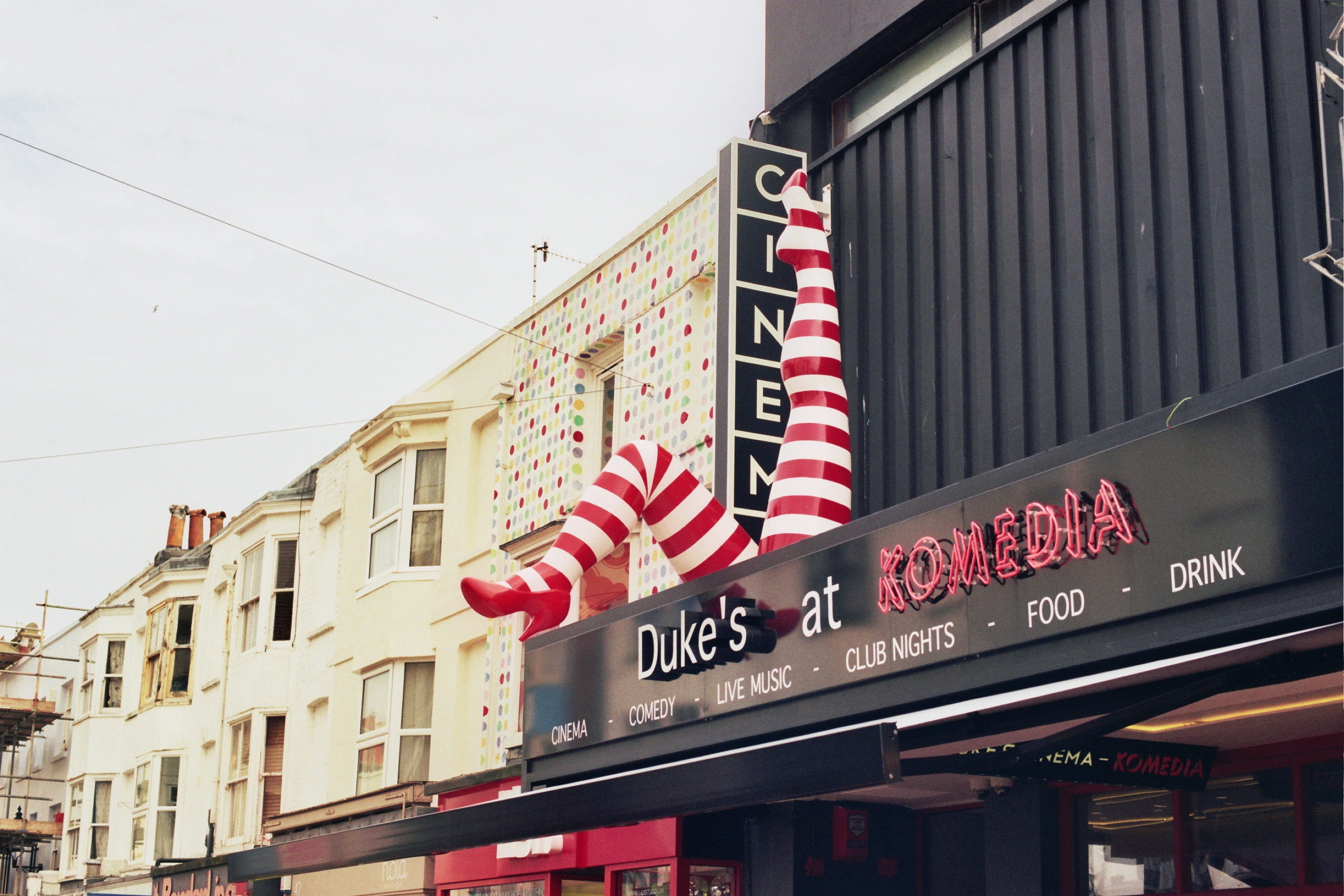Few shows demonstrate the sheer theatrical brilliance that War Horse delivered last week when it landed at our very own Brighton Centre. Renowned worldwide for its inventive use of puppetry, the performance did not disappoint; this is a show that combines technological brilliance with imagination and heart, to create something beautifully unique and sensational.
It is the genius of the South African Handspring Puppet Company’s incredible animal puppets that is most responsible for the praise the award-winning show has picked up in its 11 years of running worldwide, and it is no mystery as to why. Birds and horses designed by the company’s Basil Jones and Adrian Kohler are animated live on stage by a phenomenal team of actors, who in the magic of it all it is all too easy to forget are there at all. The complexity and subtlety that go into these performances – which include vocalised animal noises as well as movements – is superb; matched with the intricate design of the animals themselves, which combines delicate wooden prosthetics and fabrics, it is not hard to become transfixed by the believability of the animals.
Praise for the production’s use of puppetry runs the risk however of belittling the brilliance of War Horse’s other technical elements. One of the most notable devices used is a screen reaching across the length of the stage resembling a strip of paper from Lieutenant Nicholls’ journal. Upon the screen emerge animated sketches resembling the scenes that play out before us, drawing us into the snowy Devonshire hills or the dark terror of the Somme.
The contrast between Devon and war-torn France is striking. Soft yellow lighting, fluid set and rural soundscapes establish the warm simplicity of the Devonshire farm where we meet young Albert and his horse Joey. This tranquility is wrenched apart with the announcement of the First World War: white lights blare, trumpets shriek and garish bunting is strewn about the stage. As Joey is torn from his home and transported to the trenches, the bulky, mechanised set and billowing smoke makes it clear we are not in Kansas anymore.
That sense of isolation, and of the destruction of innocence, is at the core of War Horse. We are watching perhaps the oldest story ever told through a strikingly modern medium and alongside an unorthodox protagonist. 100 years on from the end of World War I, around which the story revolves, War Horse offers a perspective which though first published some 36 years ago is yet to have much of a place in our society. When we remember the victims of war, War Horse pleads that we not forget the many millions of animals who also perished.
And so unfurls a heart-wrenching critique of war, not only for its human atrocities but for the terror it unleashes on the world around it. Twittering birds and fluttering trees give way to huge machinery and blaring gunfire; this is the unrelenting mechanical bastardisation of nature.
Although based on a children’s story – the novel War Horse was written by Michael Morpurgo back in 1982 -, the production does not shy away from portraying war in all its horror and brutality. The first gunfire of the show sends a jolt through the entire audience. A tension seizes us as Joey and his fellow horses charge into battle amongst the thick smoke, strobe lights and the clanging of weapons, voices and barbed wire.
Perhaps even more horrific are the effects of war etched onto the characters: soldiers shuffle along hunched and blackened by wounds, and the horse puppets become hauntingly skeletal.
But the grand narrative War Horse tells is not one without hope. In spite of the tragedy of the story, we are offered a vision of an alternative way of living: one in which humanity and animals are united. It is through the horse Joey that we come to see the humanity of both the English and the German soliders, as well as the French civillians. In the production’s most compelling and fantastically comical scene, two soliders from opposite trenches meet in no man’s land, and it is Joey who brings them together.
When the curtain falls, there is hardly a dry eye in the house, but the overwhelming sensation is one of awe and compassion, not of despair.
Such a response can hardly be achieved without the raw emotion displayed by a terrifically talented cast. Thomas Dennis’s Albert charms with his boyish energy and country innocence, while Jo Castleton and Gwilym Lloyd shine as his respective parents, who bring important discussions on substance abuse, gambling and toxic masculinity to the table with passion and flair.
A stand-out performance by Peter Becker brings out the humility of Friedrick Müller, a German soldier gone awol, who befriends Joey and a destitute French girl, Emilie (Joëlle Brabban). Becker portrays the raw intensity of emotion experienced by a man driven to the edge by guilt and fear. Müller appears to us as something like a lost child, wandering the stage in confusion, unsure of his place in a nightmarish world he can no longer recognise. As his arc progresses and the danger of war creeps up on him once more, his grip on reality seems to fluctuate with his spasming emotional state.
It is Müller too who in his terror voices one of the many tragedies of war War Horse seeks to unveil: holding a photograph of his wife and daughter he sobs that, “This war is meant to make men, but I am half the man I was.”
Vast theatrical talent and imagination seamlessly unfold about a simple yet incredible story that carries all the emotion of the Michael Morpurgo novel upon which it is based. On the one hand, this is a timeless, humble tale of courage and comradery; yet it carries with it a subtly political and supremely powerful message that is as relevant today as it was a century ago. It is a delight therefore that such phenomenal theatrical talents have united to tell, and continue to retell, such a phenomenally important story.
Image Credits: Brinkhoff/Mögenburg






